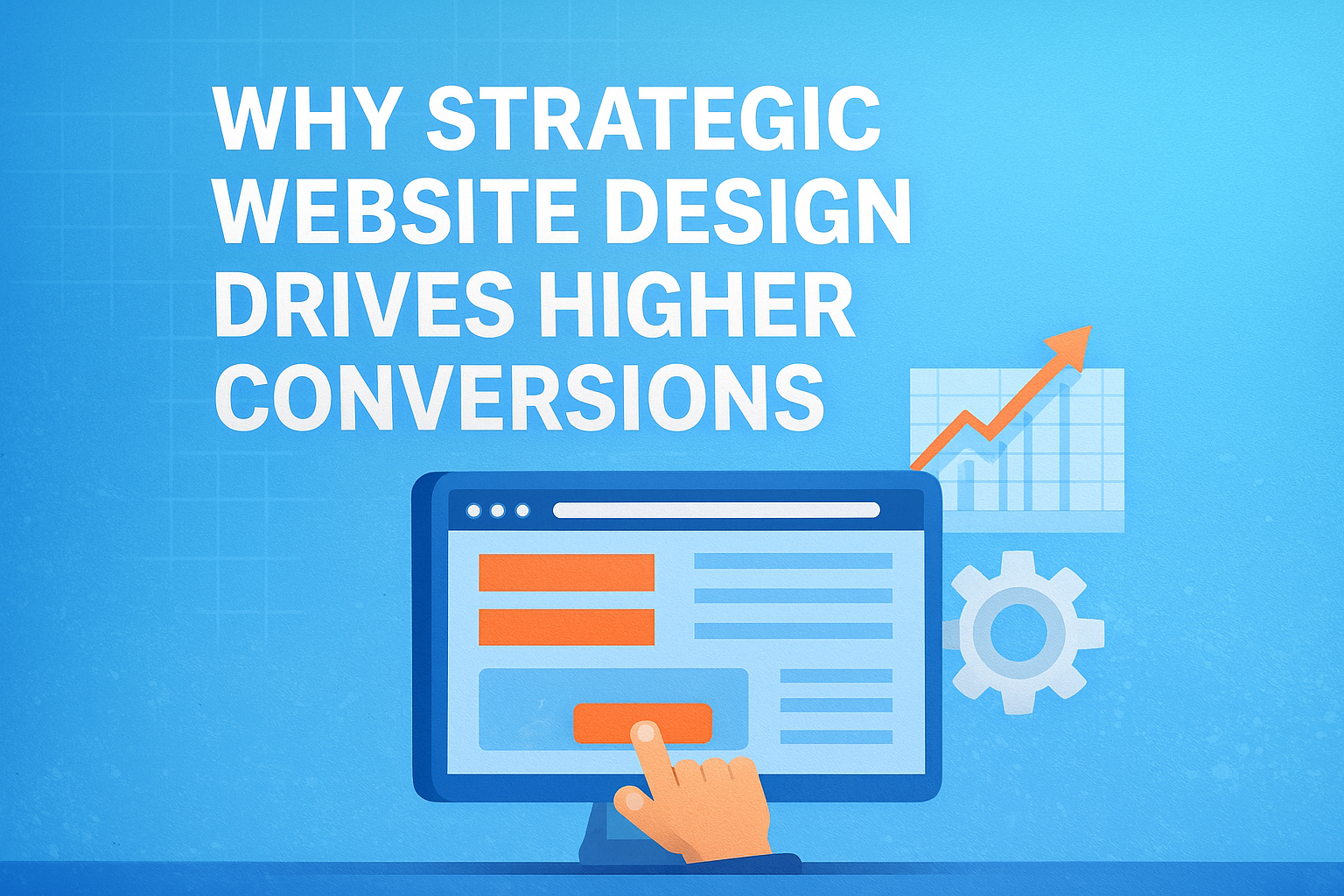In today’s digital world, a website is more than an online address. It is a space where customers judge your business, decide whether to stay or leave, and ultimately take action. A good design does far more than making a website look neat. Strategic website design guides users, builds trust, and leads them toward conversions.
When planned and structured well, your website becomes a strong business tool. This is why many companies work closely with a professional web designing company in Kochi to create digital experiences that bring measurable results. Strategic design is not just about layout or colors. It connects user psychology, business goals, technical efficiency, and branding into one cohesive system.
This blog explains how strategic website design supports higher conversions, the key elements involved, and why this approach matters more than ever.
Strategic design focuses on purpose. Every button, section, and interaction has a clear reason behind it. Websites no longer survive by only being visually appealing. Customers expect websites to be fast, clear, simple, and helpful.
Most users leave a site within seconds if they cannot understand what the page is about. Strategic design helps capture attention instantly with strong messaging, clean layouts, and logical placement of elements.
Businesses in Kochi and across India are now active online. Customers compare websites and choose the one that is easy to use. A strategically designed website gives you an edge by presenting information in a clear and engaging way.
Trust is built through consistent visuals, professional layout, smooth navigation, and reliable performance. A strong design shows users that a business cares about quality.
Conversions take many forms—product purchase, form submission, consultation booking, newsletter signup, or even spending more time on the site. Strategic website design supports all these actions.
Here are the major ways it boosts conversions:
A user’s journey is the path they take from entering your site to completing an action. Strategic design shapes this journey carefully.
Every page is structured to guide users logically. For example:
- Homepage → Services
- Services → Detailed information
- Detailed information → Inquiry
This simple flow reduces confusion and helps users reach the intended page faster.
Strategic design removes unnecessary elements that confuse users or pull attention away from key actions. A clean interface prevents users from getting lost.
CTAs play a major role in conversion improvement. Placement, wording, and design all matter.
Strategic CTAs use simple and action-focused words such as:
- “Book a call”
- “Send message”
- “Get quote”
- “Start now”
These CTAs guide users without being forceful.
Strategic design ensures CTAs stand out but still match the brand identity. They are placed where users naturally look—right after important information.
Performance is a major factor in conversions. Even a slight delay leads to drop-offs.
A strategic design reduces heavy elements, compresses images, and optimizes code. Faster pages lead to higher customer satisfaction.
A large number of users in Kochi check websites through mobile phones. Strategic design ensures a smooth experience across screen sizes.
A strategic design follows a brand’s mood, tone, and values. Consistency is key to gaining trust.
Using repeating styles builds recognition. When users see similar patterns across all pages, they trust the brand more easily.
Visuals influence emotion. Strategic design uses images that reflect the brand’s message and connect with the target audience.
Even the best content fails when placed incorrectly. Strategic design places information where users expect to see it.
Users should see important details first. Strategic placement ensures benefits, pricing, features, and proof of quality are visible without much scrolling.
Short paragraphs, clear headings, and organized sections allow users to find information quickly, improving the overall experience.
People act when they feel confident about your business. Social proof helps build this confidence.
These show real experiences and help build credibility.
Strategic design displays achievements in a clear way, helping users understand the value you provide.
Conversions improve when forms and checkout processes are easy.
A simple form performs far better than a long one. Strategic design removes unnecessary fields.
In ecommerce websites, strategic design ensures checkout is simple, secure, and smooth.
Businesses often choose a professional agency because design involves technical skills, customer psychology, and continuous improvement. This requires experience and clarity. Many companies rely on firms like Inter Smart for structured planning and user-focused design solutions.
A strategic design approach brings together usability, branding, technical strength, and smooth functionality. This ensures the website not only looks good but performs well across all devices.
Strategic design includes several detailed methods that work together. Here are some effective techniques:
Designers use user behavior patterns to decide where to place CTAs, banners, and menus.
This ensures the website adjusts smoothly across mobile, tablet, and desktop.
Two variations of pages are tested to identify which one brings better conversions.
Short, simple text helps users understand what they are reading without effort.
A strategically designed site brings benefits beyond immediate conversions.
Search engines prefer well-structured and user-friendly websites. This improves ranking.
If users enjoy their experience, they return again. This leads to long-term brand loyalty.
A high-converting website reduces the need for heavy advertising.
Strategic website design is one of the most effective ways to improve conversions. It aligns layout, content, user psychology, branding, and functionality to guide users toward meaningful actions. A website becomes more than a digital card—it becomes a system that supports business growth.
For businesses aiming for better performance, partnering with a professional web designing company in Kochi helps bring clarity, structure, and measurable improvements. Strategic design is not about adding visuals—it is about shaping a smooth journey that encourages users to take action with confidence.

